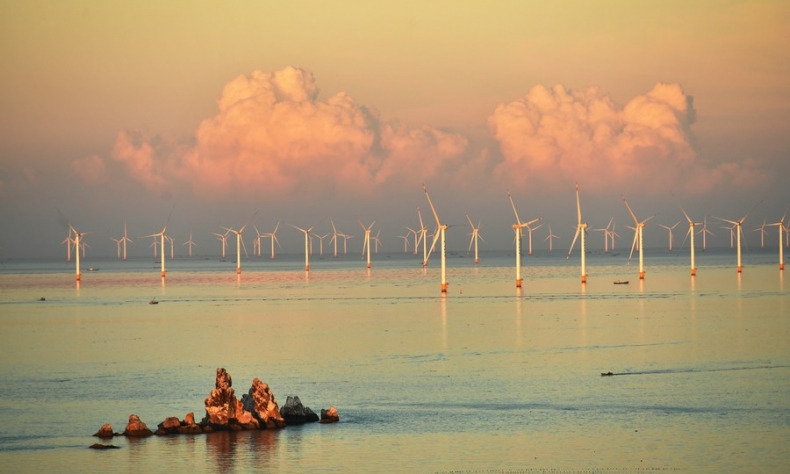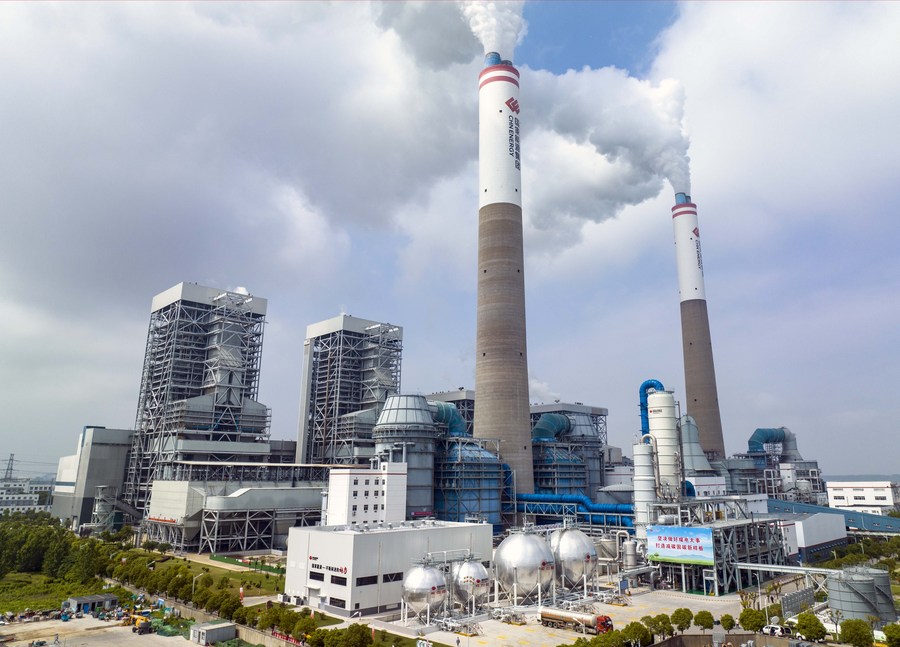China-U.S. Engagement Critical to Global Climate Action

Sino-U.S. climate cooperation is more critical than ever to narrow the investment and progress gap within and beyond 2030.
The COP28 in Dubai has reinforced the need for a united front to deal with climate change. The world risks veering off further from efforts to restrict global warming to 1.5 degrees Celsius at all costs.
Against this backdrop of urgency, the UN conference has also underlined the significance of Sino-U.S. climate cooperation to bring the flagship event to a successful finish and advance global climate targets.
Look no further than Beijing’s intense engagement with U.S. counterparts to generate consensus around the sticky issue of fossil fuels. China’s climate envoy, Xie Zhenhua, continued to closely coordinate with U.S. counterpart John Kerry to ensure a practical compromise on fossil fuel language that helps secure a landmark agreement. As two major powers in the global agenda for climate adaptation and sustainability, China and the U.S. play a critical role in driving up consensus on energy transition needs and help balance competing expectations of developing and developed economies.
Their joint emphasis on a fossil fuel phase-down can lend greater visibility to the deployment of renewables. After all, Washington and Beijing maintain a pragmatic outlook on each nation’s ability to embrace this transition based on their differing development needs and progress status. It is also clear that Washington and Beijing had the willingness and determination to pursue intense bilateral engagement at COP28 and use their deft maneuvers to secure an understanding that speaks for those around them.
Beijing and Washington’s urgency and support for global climate action also have strong roots. Rounds of bilateral talks were held in July and November, paving the way for substantive commitments on emissions reduction, adaptation, and energy transition. Above all, these understandings laid important legwork in the lead-up to COP28. Consider their working group on “Enhancing Climate Action,” a vital expression of global climate progress that provides a mechanism for information exchange and emission control technologies that the world can follow.

Despite a range of emissions-cutting pledges from nations, it is increasingly clear that countries will struggle to contain rapid global warming, according to the International Energy Agency. That warning makes a fundamental reality certain: Sino-U.S. climate cooperation is more critical than ever to narrow the investment and progress gap within and beyond 2030.
Pacts between these transformational actors have favorable consequences for global climate progress. The Sunnylands agreement last month is a case in point. It provided an important roadmap to strengthen consensus on energy transition and contained terms that were suited to a hard-fought compromise on fossil fuel substitution at COP28.
Similarly, both Washington and China are investing heavily within their borders to set the tone for a long-term overhaul that favors renewable energy deployment. According to a Bloomberg analysis, China is on course to install over 300 gigawatts of solar and wind capacity this year and is set to shatter its clean energy target five years in advance. The majority of its foreign development projects are also grounded in renewables, indicating a desire to extend the benefits of sustainable energy to the world. Likewise, Washington brings its own energy transition strengths to the table. Among them lies a sustained focus on dialing up solar and wind energy use and leveraging that potential to power millions of homes well within a decade.
Thus, continuity of dialogue, exchange of expertise, and their combined economic and diplomatic heft make U.S.-China climate cooperation vital to the health of a safer planet. To the credit of both sides, global climate action has consistently featured as a fixture in bilateral relations. That common ground has spawned landmark agreements and declarations through the years, including the 2021 U.S.-China Joint Glasgow Declaration, the 2023 Sunnylands agreement, and the U.S.-China Joint Statement on Addressing the Climate Crisis.
Stronger convergence serves the interests of the world at large.
Hannan R. Hussain is a foreign affairs commentator, author and recipient of the Fulbright Award.
 Facebook
Facebook
 Twitter
Twitter
 Linkedin
Linkedin
 Google +
Google +










